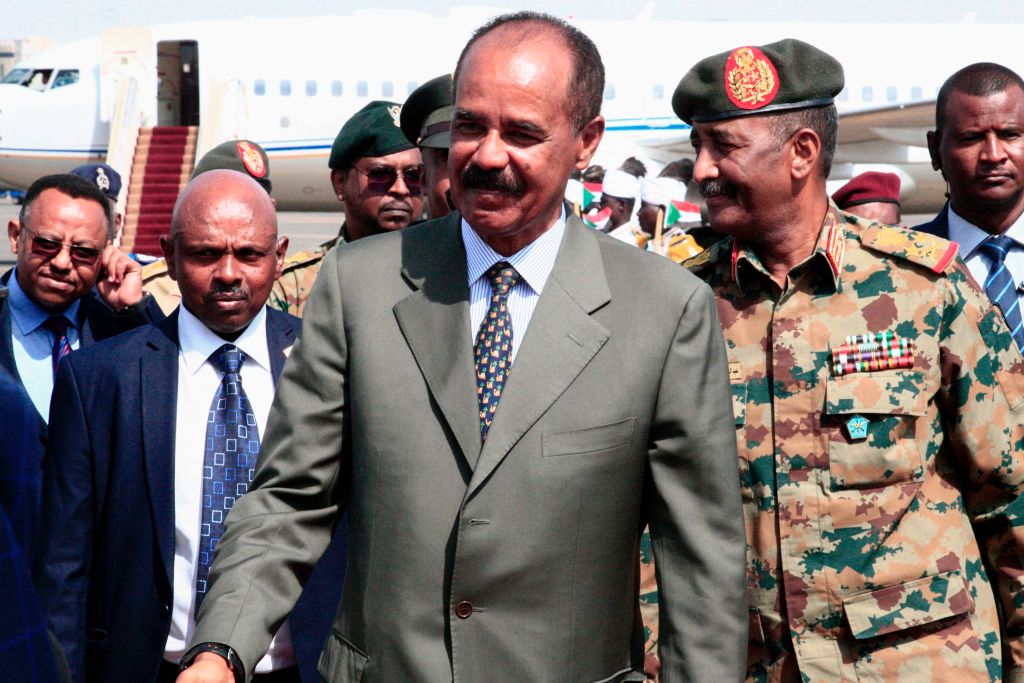ADF STAFF
When he took power in Eritrea nearly 30 years ago, Isaias Afwerki promised multiparty elections and the development of civil-society institutions. Decades later, Afwerki has consolidated all power into himself and appears to be grooming his son, Abraham, to take his place.
The senior Afwerki is 76 and has reportedly suffered health issues in the past. With no vice president and no established line of succession, Afwerki appears to be an example of a leadership issue affecting many countries across Africa: family dynasties as male heads of state place their sons in positions from which they can eventually take power, typically without elections.
Experts say such dynasties avoid accountability, encourage corruption and build resentment among populations eager for new blood. The concentration of power and the abuse of wealth derived from the nation’s natural resources increase political divisions, ultimately weakening political institutions and destabilizing countries.
“At stake is self-succession, an ego-propelled quest for political immortality for which the practitioners appear to be willing to sacrifice the system itself,” Nigerian sociologist Ebenezer Obadare wrote recently for the Council on Foreign Relations. “More importantly, the longer it continues, the greater the unlikelihood of a peaceful transfer of power.”
Democratic values remain popular among young Africans, feeding opposition to the “big man” politics of previous generations, Obadare wrote.
Public opposition has not persuaded leaders of countries such as Eritrea and the Republic of the Congo, among others, to forgo dynastic transfers of power, however.
In Eritrea, Abraham Isaias Afwerki was appointed as his father’s special advisor for strategic studies in 2018. He has taken an increasingly public role since Eritrea signed a peace agreement with Ethiopia. The younger Afwerki recently was part of a 2021 Eritrean delegation to Saudi Arabia, which has become a key supporter of Afwerki’s dictatorship.
In the Republic of the Congo, President Denis Sassou N’Guesso appointed his son, Denis-Christel Sassou N’Guesso, to the post of minister for international cooperation. The son previously has served in the National Assembly, winning with 99% of the vote, and as a director of the national oil company.
The younger Sassou N’Guesso is on track to succeed his father despite international charges of corruption. Denis-Christel has had millions of dollars’ worth of vehicles, real estate and other items confiscated based on evidence that they were bought with money looted from their own national treasuries.
He and his sister Claudia have spent more than $70 million in state funds buying high-profile real estate and other big-ticket items, according to watchdog group Global Witness.
“The Sassou N’guessos are known to live lavish lifestyles, which are not compatible with public officials’ relatively modest salaries in Congo,” Global Witness researchers wrote in 2019 as part of its investigation of the younger Sassou N’Guessos’ lavish spending.
Researchers say the kind of father-to-son succession happening across Africa has little to do with the welfare of the countries and more to do with the welfare of the families in charge. Keeping the leadership in the family helps the earlier generation avoid punishment for crimes committed while in power, such as embezzling from national coffers.
According to Dr. Seidu Alidu, a political scientist at the University of Ghana, the transfer from father to son also can be about protecting the family’s wealth.
“They want somebody who can either continue that particular process that they started or somebody who can protect the investment interest of the family with those particular resources,” he told German news agency Deutsche Welle.

